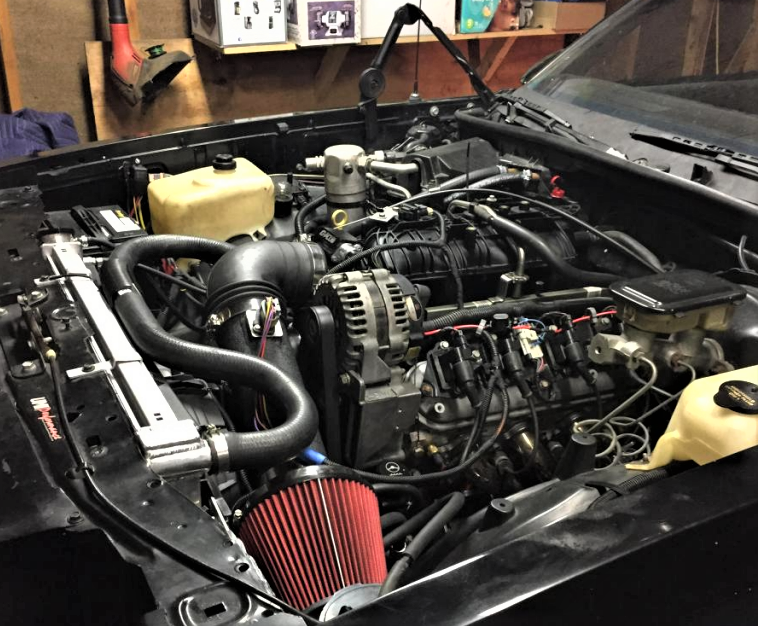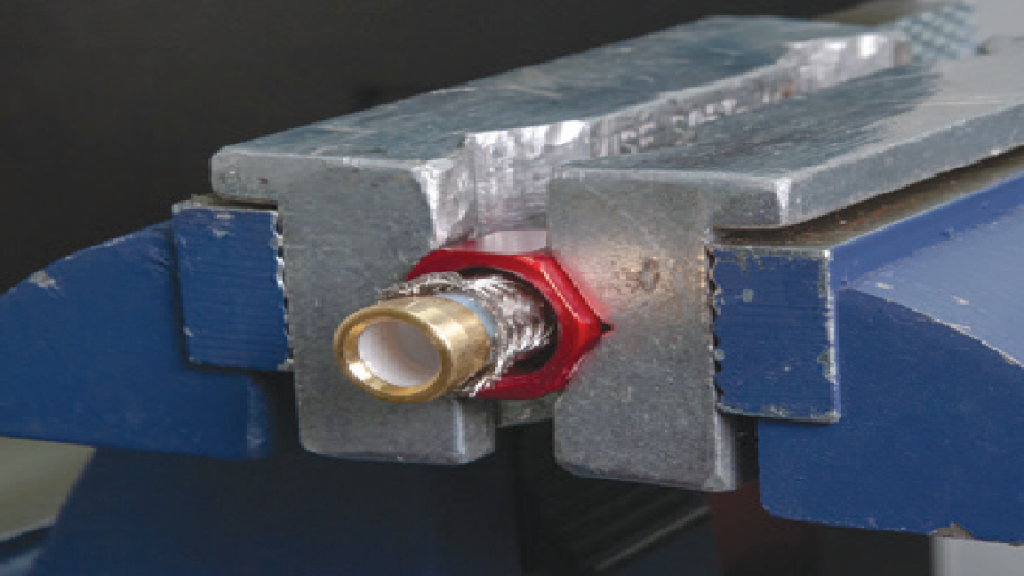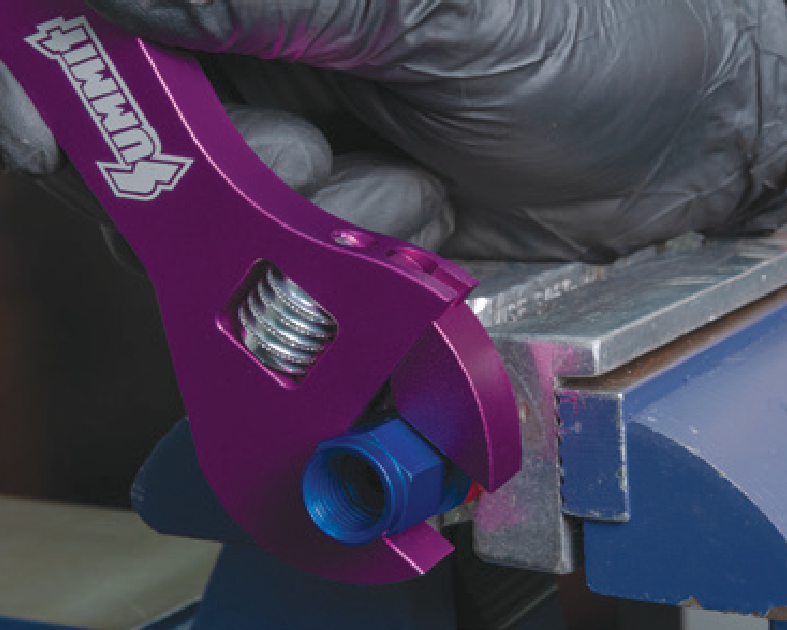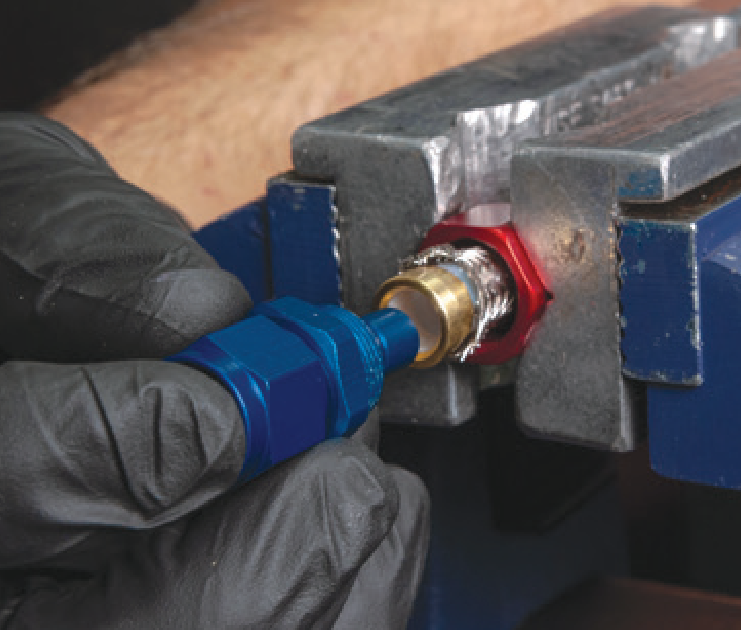
Q. A few years back, I swapped an LS into my G-body Monte Carlo. I plumbed the fuel injection system with braided rubber hose. Now I’m noticing a constant gasoline odor outside the car and suspect my fuel hose is breaking down. Is this normal, and what would you suggest I do?
Late-model engine swaps into older vehicles are more popular than ever. These engines can handle ethanol enriched fuel—up to 85% in flex fuel applications. The majority of today’s pump gasoline contains at least 10% ethanol, plus other additives that can adversely affect certain rubber fuel hoses, causing them to deteriorate. With a newer engine under the hood of your classic, your fuel system also needs to be updated for compatibility with current pump gas blends.

Polytetrafluoroethylene (PTFE) is the best material choice for overall fuel compatibility when using -AN style hose. This hose has a smooth extruded PTFE core with a braided nylon, polyester, Kevlar®, or stainless steel covering for added durability and abrasion resistance. PTFE hose can handle pressures up to 2,500 psi and temperatures to 500° F (depending on the brand and size). It will withstand E85, methanol, brake fluid, coolant, and many other fluids without permeation or breakdown. It does require a specific hose end that uses an olive (or ferrule) to compress around the hose core.
Shopping for fuel hose? Check out our Flexible Fuel Hose Buyer’s Guide.

Using a fuel pump, filter, and hose with a minimum E85 rating is always a sensible choice, even if you’re not running a flex fuel engine. With ever-changing additives and the possibility of new ethanol percentage mandates, it’s wise to be equipped for future fuel formulations.
Additionally, owners of older vehicles with the original carbureted fuel system should consider updating their stock rubber fuel hose to E85-compatible Continental Hysunite or Earl’s Performance Vapor Guard for longevity.


Comments